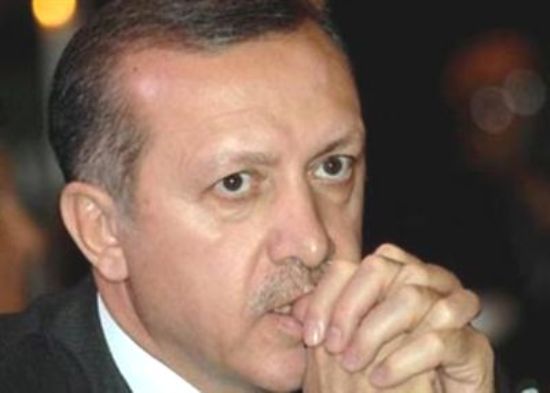03/09/2013 | Writer: Murat Köylü
If Prime Minister Erdoğan and AKP ignore the violence and discrimination that LGBTs are exposed to in all aspects of their lives; this may only be interpreted as of their political choice.

The 4th Legislative Session of the Turkish Parliament will start the 24th term on Tuesday, October 1.
For the new sessions, it is demanded that the Parliament give priority to human rights legislation and perform its supervision on the field more independently and transparently.
Turkey’s traditional legislative culture does not allow the opposition parties, rights holders, civil society and alike to participate in lawmaking processes. Hence, laws being made without any consultation, discussion or reconciliation from the rights holders side. This tradition creates a sense of arbitrariness about the political power’s unquestionable priorities.
Preconditions of the Turkish election law, such as the notorious 10% threshold for any party to get into the Parliament, keeps many elements of the social life outside the political arena. The Turkish Parliament has also a bad habit of not conforming to the standards and principles of the international intergovernmental bodies, which Turkey is a part of itself. It does not even fulfil the requirements of the ratified United Nations and Council of Europe conventions.
Reports, recommendations and declarations of these organisations are repeatedly ignored and avoided by the Turkish Government. Instruments which propose amendments regarding protection and improvement of human rights are found guilty of helping other power games One example of that is Turkey’s “Self” Progress Report against the European Union’s, which was thrown into the garbage while on air by the Head of Parliament’s Constitution Commission, Prof. Burhan Kuzu.
Turkey Fails to Obtain a Hate Crimes Legislation
Hate crimes is a burning human rights issue in Turkey, and is repeated every year in the EU’s progress reports. The issue is suggested to be taken into the Turkish Government’s – and the Parliament’s – immediate agenda by many other national and international dynamics. Unfortunately, this has not been achieved yet. State of Turkey does not have any principals, strategy and policy regarding hate crimes, which directly affects the public order; and gives harm to social peace and culture of coexistence.
Hate crimes define the incidents that people are subjected on the account of their social identities, status, inherent or acquired characteristics.
Turkey is one of the few member countries of Council of Europe and Organization for Security and Co-operation in Europe (OSCE) that does not have any legislation regarding hate crimes and lacks statistical data. Thus, Turkey does not develop any policy to redress the grievances and to stop preventable crimes.
In fact, Prime Minister Erdoğan makes mention of hate crimes; but only at a frequency compatible with his own political and ethical priorities. However, he very recently brought the issue to the agenda but again he did not refer to the various grounds of hate crimes – or hate speech – except Islamophobia.

Nevertheless, in a country where Mr. Erdoğan is responsible from its executive power for the last 10 years, people from many different social backgrounds are exposed to very severe and widespread hate crimes. Alawites, Roma people, Kurds, non-Muslims, gays and lesbians, transgender people, women, disabled people and sex workers are the often victims of the most brutal violence and the lynch culture that has permeated deeply into the public morals.
As this is the case, civil society and opposition parties have already delivered various drafts and proposals on hate crimes to the Parliament, which were refused by the ruling party AKP. These proposals are already in accordance with OSCE criteria, therefore, they may easily be given the final shape and be enacted, if political precedence is given.
Isn’t it Prime Minister’s and AKP’s Obligation to prevent violence against LGBTs?
Seemingly and as Prime Minister pointed out; lesbian, gay, bisexuals and trans people will need to have their substantial concerns on hate crime regulations, as well as the new constitution throughout this year. Also, the anti-discrimination law which is suspended as a draft for many years may be another human rights legislation to follow with top priority for LGBTs in Turkey.
Sadly enough, the AKP Government, which has rejected the adoption of “sexual identity, sexual orientation, gender identity” in the drafts of anti-discrimination bill and the new constitution, creates deep concerns of LGBTs and equality defenders with regard to hate crimes legislation.
However, as stated by United Nations Secretary General Ban Ki-moon last year, attacks targeting LGBTs in every region of the world tend to be much more vicious than other hate motivated incidents taking place. In his speech, Ban Ki-moon condemns homophobic and transphobic violence as a “great shame for humanity”.
If Prime Minister Erdoğan and AKP ignore the violence and discrimination that LGBTs are exposed to in all aspects of their lives; this may only be interpreted as of their political choice. It is obvious that, such a political choice of the Government means even further than being part of the crimes.
Tags: life

